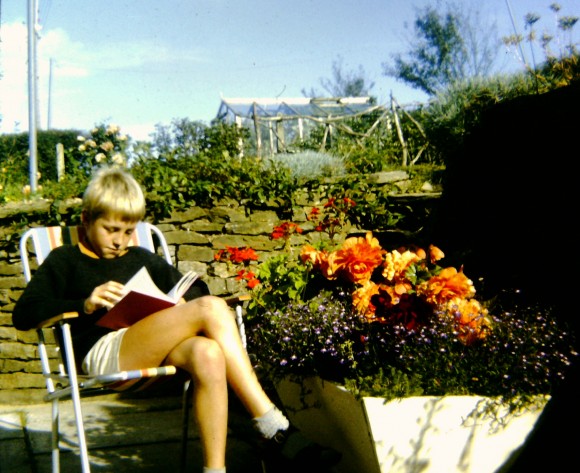Reading Transforms the Brain

Credit: Andy Roberts, Flickr:https://flic.kr/p/dYumLH
Every summer I create a reading list for myself. It usually contains books written by the likes of Virginia Woolf, Wilkie Collins, or Jules Verne; writers who were prominent in the 19th and 20th centuries. I love getting lost in the elegant language of literature –the complicated prose and endless layers of metaphor. This type of written discourse reminds me of warm summer days, sitting outside on a blanket, happily untangling complicated pieces of prose.
French novelist Marcel Proust put it aptly; “There are perhaps no days of our childhood we lived so fully as those…we spent with a favorite book.”
Reading transforms the brain
Last year I read a book by Maryanne Wolf who wrote on the science of the reading brain. Called Proust and the Squid, Wolf evokes Proust in her book because he described “reading as a kind of intellectual ‘sanctuary’ where human beings have access to thousands of different realities they might never encounter or understand otherwise.” Wolf utilizes Proust’s work because he understood the transformative power of reading as early as the 1900s. In her book, Wolf details how new information creates new networks in our brain, and how spending time untangling complex pieces of writing trains our brain to make those connections faster and deeper each time we read. Wolf’s book is especially important because of its strong emphasis on the transformative power reading has on the structures of the brain as they are integral to the intellectual and emotional development of our species.Reading transforms the self
In a similar way to Wolf, Geez contributor C. Christopher Smith commends the act of reading for its transgressive powers in the latest issue of the magazine (number 42, Reading to Transgress). Smith writes specifically about reading fiction and argues that fiction gives us the capacity to try on other “social imaginaries.” To do so, we cannot be passive readers because reading requires us to actively imagine the work in our head. Smith believes that “Reading…will inevitably expand and transform our individual imaginations…it also plays a crucial role in changing our social imaginaries. Through reading, we encounter new and different language, theory, and structures.” Through reading, we can expand our knowledge of the world and develop the ability to see things from different perspectives that we may normally never have encountered. We can only do this by actively taking on the perspective of the work that we are reading, every time we pick up a book.
Reading transforms the lens through which we see the world
Fiction may help us walk in the shoes of another person, but some of the most enlightening moments in my life have come from reading what other people have written about their experiences.
Recently this happened when I read Niigaanwewidam Sinclair’s article A Treaty is a Gift published in Geez issue number 39, The Decolonization Issue. Sinclair tackled widely held myths about treaties, explaining that treaties “are dynamic, changing, and legally binding documents with members who carry responsibilities to ensure that both sides grow and benefit ‘for as long as the grass grows.’ Without treaties, there’d be no houses, no water or sewer hookups, no universities, and no Canada. Everything around us is due to them.”
Sinclair’s article revealed to me that I still held outdated assumptions about treaties because I did not fully understand the extent to which treaty agreements have benefited this country. Now, I no longer see them through white lenses, but as something we have to work to uphold; because, as Sinclair points out, “Treaty rights are constantly minimized by the federal government, and promises have never been fulfilled….While Canada has become one of the richest countries in the world. Indigenous people have received inadequate housing, tainted water, and inappropriate funding caps to education.”
Without having read articles like Sinclair’s, I would still be convinced by ignorant arguments like this one: “Why don’t we just rip up the treaties and start again?” I am glad that I now see the damage white dominance has caused, and continues to cause. I am glad to have read articles, stories, and books that have taught me that I need to take off the lenses of white privilege in order to take action in a way that betters this world.
Wolf, Smith, and Sinclair exemplify this simple fact —the more we read, and the more variety we read, the more empathetic and socially conscious we become.
Smith and Sinclair’s articles are available through Back Issue ordering by clicking here.
Allison Zacharias is a summer intern at Geez. She lives in Winnipeg, Manitoba.


Sorry, comments are closed.